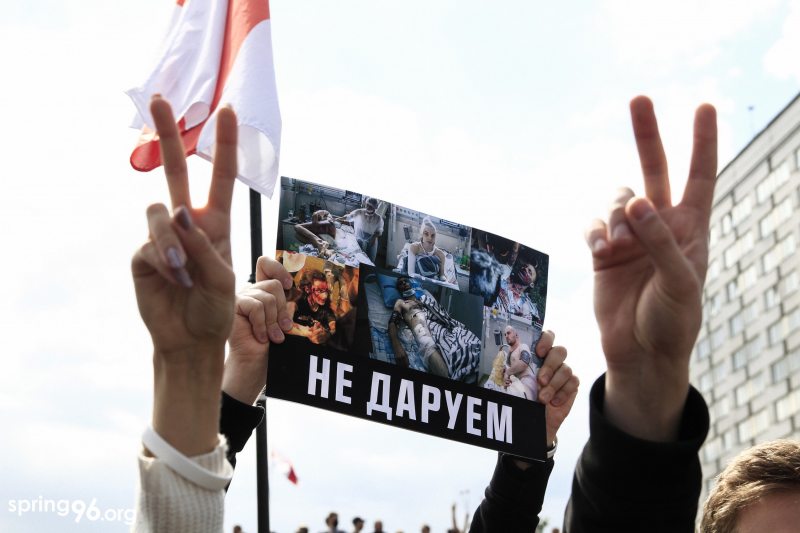Two years after the election fraud in numbers
Two years ago, on August 9, 2020, presidential elections were held in Belarus, the results of which were rigged. This day became a point of no return in the history of modern Belarus.
Each of the 730 days that have passed since then has been marred by repression. Protesters have been detained and tortured, and put behind bars in inhuman conditions for far-fetched reasons in criminal and administrative cases. The Belarusian authorities wage a fierce battle against parents of many children, seniors, students, doctors, human rights activists, journalists, teachers, and other representatives of the Belarusian society who express their disagreement. In the two years since the beginning of the election campaign almost 12,000 people have been subjected to administrative prosecution, more than 1,260 people were put behind bars for political reasons, and several thousand people have been through torture and beatings. There has been a fiftyfold increase in the number of political prisoners in these two years. But Belarusians continue to protest against the regime.
Two years after the election fraud in numbers
More than 5,000* ‘protest’ criminal cases were filed in two years, and more than three thousand people became defendants and defendants. At least 1,800 people were convicted in politically motivated cases. Even Henadz Shutau who was killed by a firearm during the Brest protests on August 11, 2020, was posthumously found guilty of ‘resisting a police officer’ (Article 363 of the Criminal Code). Shutau’s friend and a witness of his death Aliaksandr Kardziukou was sentenced to 10 years of imprisonment.
At the same time, as of August 9, 2022, not a single criminal case was initiated by the prosecutor's office and the Investigative Committee regarding the death of protesters and the use of torture and ill-treatment against them. So far, the cases have not been investigated and those responsible for the deaths of Aliaksandr Taraikouski, Henadz Shutau, Aliaksandr Vikhor, Raman Bandarenka, and Vitold Ashurak have not been brought to justice.
There are currently 1262 political prisoners in Belarus. Representatives of various social groups are kept behind bars: human rights activists, journalists, activists, politicians, teenagers, students, factory workers, former civil servants and law enforcement officers, teachers, cultural figures, doctors, construction workers, scientists, and others. Parents with many children, minors, seniors, and people with illnesses are sent to the colonies for participating in protests. Many people are incarcerated with serious illnesses but do not receive the necessary medical care. Throughout the entire time in custody, political prisoners are subjected to continuous pressure from the administration of the institutions.
Seven of our colleagues are still being held in jail for their adamant position and disagreement with the actions of the authorities. They are Viasna Chairman Ales Bialiatski, his deputy Valiantsin Stefanovich, lawyer Uladzimir Labkovich, coordinator of Viasna’s volunteer network Marfa Rabkova, head of Viasna Homieĺ branch Leanid Sudalenka, and volunteers Tatsiana Lasitsa and Andrei Chapiuk. Those who defended the rights of Belarusians are now behind bars themselves.
At least 40,000 people were detained on administrative charges. Human rights defenders are aware of the results of 11,924 trials, according to which 7,521 people were sentenced to administrative arrest for a total of 282.25 years. At least 4,403 people were ordered fines totaling 3,011,392 Belarusian rubles (equivalent to 1,193,000 US dollars).
*numbers may be incomplete as not all facts of repression are known to human rights defenders, trials are often held behind closed doors, information from official agencies is not updated, and their data might be unreliable.


















